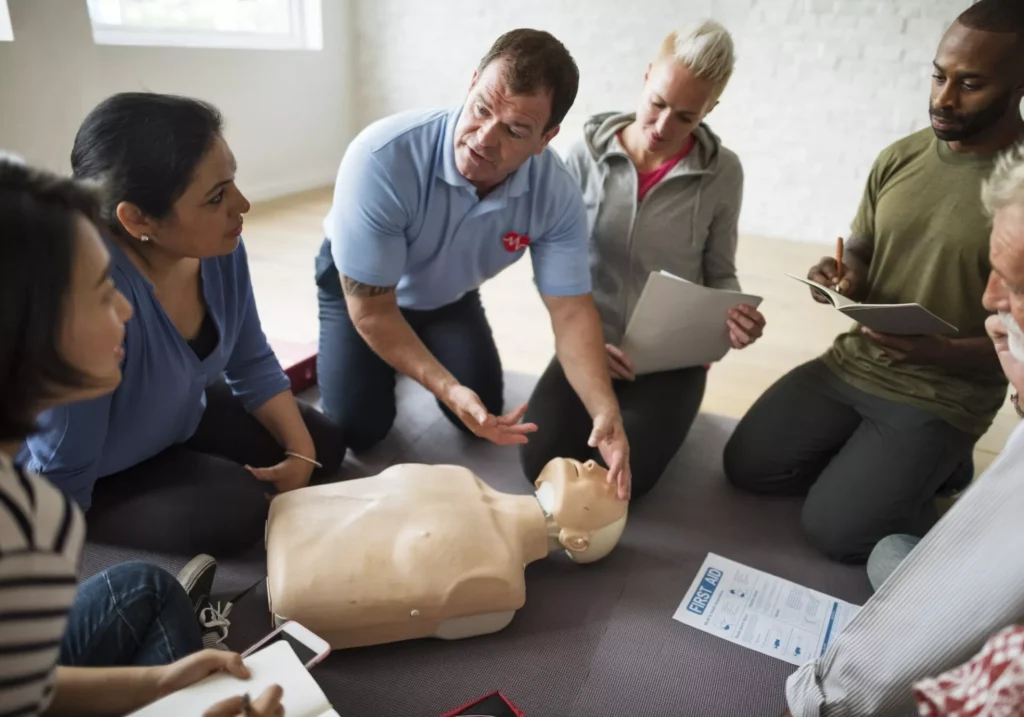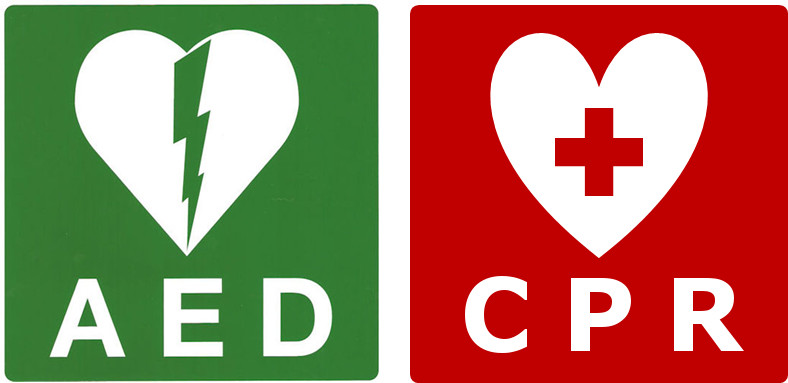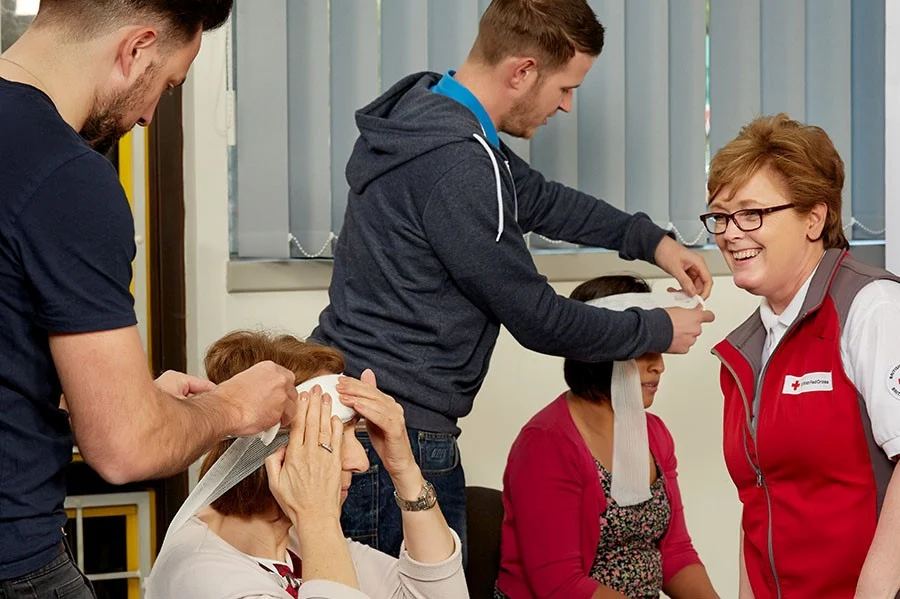First aid certification is a crucial component of emergency response, equipping individuals with the knowledge and skills to assist those in need during critical situations. This invaluable certification necessitates periodic renewal, ensuring that holders are adept with the latest life-saving techniques. This comprehensive article delves into the nuances of first aid certification, exploring its basics, duration, the significance of staying current, and various aspects related to renewal and continuous education.
First Aid Certification Basics

First aid certification is a formal acknowledgment of an individual’s ability to perform immediate and basic care in medical emergencies. It encompasses a variety of skills, including wound care, CPR, and addressing sudden health issues like strokes or heart attacks.
There are diverse types of first aid certifications, catering to varying needs and contexts. Standard First Aid is suitable for the general populace, providing basic knowledge for everyday situations. Advanced certifications exist for professionals, focusing on specific medical equipment and advanced life-saving techniques, catering to high-risk environments like construction sites or large-scale events.
Understanding the different types of certifications is essential as it aligns with distinct needs and prerequisites. The certifications equip individuals to address emergencies proficiently, potentially being the difference between life and death, until professional medical help arrives. Having an appropriate certification is not just about meeting regulatory requirements but about being adequately prepared to respond to emergencies effectively and responsibly. If you’re about to enter this world it is better to connect yourself with professionals in the domain such as https://cprcertificationnow.com.
Certification Duration

Typically, first aid certifications have a validity period of two to three years. This limited period ensures that first aid providers are conversant with the evolving best practices in emergency medical response. The medical field is ever-advancing, with continual research yielding new insights and methods, rendering some previous practices obsolete or less effective.
The limited validity acts as a quality control measure, ensuring that those certified are not relying on outdated or potentially harmful methods. The periodic renewal process typically involves a reassessment of knowledge and skills, ensuring that individuals are still capable of performing the required tasks efficiently and effectively. This regular updating is crucial in maintaining a high standard of first aid provision, safeguarding the well-being of those in need of immediate medical attention.
Regulatory Requirements
Regulatory requirements for first aid certification renewal vary across jurisdictions but are inherently designed to ensure public safety. Some regions mandate specific renewal periods, refresher courses, and assessments to validate the continuing competency of certification holders. These mandates ensure that first aid providers adhere to the prevailing standards and are well-versed in contemporary first aid techniques and protocols.
Fulfilling these legal and regulatory requirements is paramount. Non-compliance can result in legal repercussions and can jeopardize the trust and safety of the community. A first aider’s adherence to these regulations underscores their commitment to maintaining a high level of proficiency in delivering first aid, fostering a safer and more responsive environment.
First Aid Techniques and Knowledge

Being updated with the current first aid techniques and knowledge is non-negotiable. The medical landscape is dynamic, with continuous research modifying and refining first aid protocols. What was considered best practice a few years ago may no longer hold, replaced by more effective and safer alternatives.
For example, the approach to treating certain wounds or injuries has evolved, with new research dictating modified procedures to prevent infections or complications. Being abreast with these developments is essential for first aid providers to administer the most effective and safest care possible during emergencies.
CPR and AED Certification

CPR and AED certifications are crucial subsets of first aid training, focusing on resuscitation and defibrillation. These certifications usually have similar renewal requirements, emphasizing the critical nature of these life-saving skills. The significance of CPR and AED in emergencies is immense, as timely and correct application can be the decisive factor in survival during cardiac arrests or respiratory failures.
It is essential to note that while CPR and AED are integral to first aid, their certifications are often distinct, addressing specific skills and knowledge related to cardiopulmonary resuscitation and automated external defibrillators. The renewal of these certifications ensures that individuals are proficient and confident in performing these vital interventions when seconds count.
Expiration Dates and Renewal Process
Expiration dates on first aid certificates signify the end of the certification’s validity period. An expired certification can have serious consequences, including legal implications and decreased employment opportunities, especially in professions where having a valid certification is a prerequisite.
Renewing a certification usually involves undergoing a refresher course and passing an assessment. This process is crucial as it reaffirms an individual’s capabilities and updates them on any changes in first aid protocols, ensuring they are equipped to provide optimal care during emergencies.
Continuing Education and Employment and Liability

Continuing education in first aid is about proactive learning and skill refinement, going beyond mere certification renewals. Numerous resources and organizations offer ongoing education, keeping first aid providers informed and skilled.
Having a current certification is often a significant factor in employment within specific sectors, where the ability to provide first aid is a valuable asset. A lapse in certification can have liability implications, possibly resulting in legal actions if uncertified individuals administer first aid.
Common Misconceptions
A prevalent misconception is that first aid certifications last a lifetime. Many believe that once they are certified, they don’t need to renew their certifications. This misconception can lead to the propagation of outdated or unsafe first aid practices, which can be dangerous in emergency situations.
Conclusion

In conclusion, understanding the duration and renewal process of first aid certification is critical for every certified individual. The periodic renewal and continuous learning ensure that first aid providers are well-equipped with the latest knowledge and skills, ready to act in emergencies effectively and safely. This readiness is not only a personal responsibility but also a societal one, emphasizing the importance of being prepared to help others in times of need.

